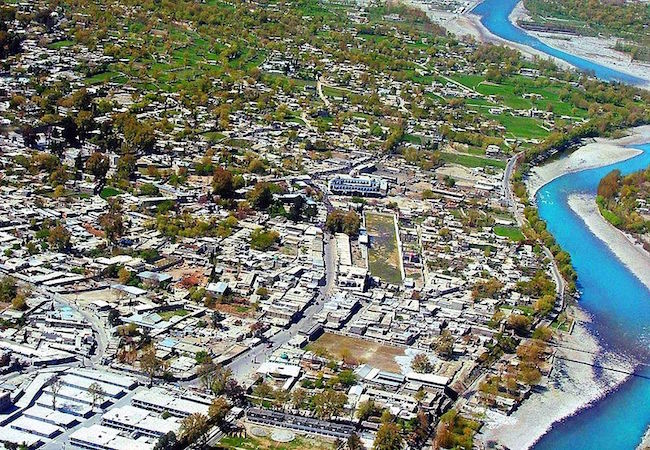CPEC: a boon for Gilgit-Baltistan

By Sadia Kazmi
Gilgit-Baltistan being the only entry point between China and Pakistan holds immense significance which translates into this region being strategically important not just for China but for Pakistan as well. Neglecting this region in anyway will not reap the promised benefits of CPEC for Pakistan, and this is already clearly understood by the Pakistani policy makers. Although some serious irritants remain to be resolved including the mainstreaming of Gilgit-Baltistan. Nonetheless, the problems shouldn’t hold back the development of the region. CPEC which connects the Gwadar port in Baluchistan to Kashgar in China, has a number of projects distributed among the provinces of Pakistan. Similarly, the Gilgit-Baltistan region sets to gain from the Moqpondaas Special Economic Zone. The 250 acres of land have been identified which is allotted for this SEZ and the initial feasibility report has already been shared with the Chinese counterpart. The type of industry this SEZ offers include Marble, Granite, Iron ore processing, Steel industry, Food processing, Leather industry and Mineral processing industry.
The SEZ is easily accessible through Gilgit Airport (35 KM) and Skardu (160 KM). From Sust dry port it lies at a distance of 200 KM and runs on a CPEC stretch of 4 KM on the Gilgit-Skardu road. The industrial projects envisaged under the Moqpondaas SEZ bring a wave of hope to the industry starved yet resource rich region of Gilgit-Baltistan. Despite it having the highest literacy rate as compared to any part of Pakistan, the people of GB find it hard to avail good employments. CPEC promises to bring job opportunities for the local educated population by setting up these industries and giving boost to the trade activity with adjacent China. The road link will allow the smooth flow of trade goods on daily basis with an added advantage of opening routes for tourists in this part of Pakistan which is blessed with the most beautiful mountain range of Karakoram, Himalaya and Hindukush. The region offers rich cultural and civilizational history which has a huge potential to generate revenues by attracting large number of foreign tourists. However, these potentials are still untapped and need to be propped up through properly organized and methodical policy. There is no fish industry in the region despite the area offering best quality trout in Pakistan.
Although the CPEC has been welcomed by the locals, there are serious grievances that need to be addressed. For instance, it is feared that the CPEC projects might displace the local population for the sake of building industries and establishing SEZs. It is also a concern that the heaving traffic might temper with the ecology of the region causing pollution and rise in the temperatures, same is being thought about the railways once the trains start passing through the region. Building of roads and tunnels as part of KKH through hills and mountains has caused landslides a constant feature in many parts of the region, fundamentally changing the landscape. It is also believed that the influx of Chinese goods, workers and officials in the region has somehow taken over the local industry and almost sidelined the local populace. Although it is understood that the security and safety of the Chinese nationals is a responsibility of the local security forces but putting up barriers and cordoning off the specific areas and making them into ‘no entry zones” has managed to alienate the locals in their own region. Some part of the local population is also skeptic about the promised benefits of the CPEC project. However, these insecurities have been addressed by the Chinese as well as Pakistani officials.
Chinese Ambassador to Pakistan Yao Jing has emphasized upon the fact that “Gilgit-Baltistan is an important part of the China-Pakistan Economic Corridor (CPEC) project and residents of this region will be provided maximum benefit”.
A Chinese envoy in April 2018, during a meeting with a delegation of Gilgit-Baltistan Chamber of commerce and Industry was vocal in expressing that “The Chinese government wishes for the development of the residents through trade activities between GB and neighbouring Xinjiang province, for which various projects including hydropower projects, Gilgit-Chitral road, Karakoram Highway (KKH) upgradation and maintenance schemes have been initiated in the GB region.”
Hence one can be sure that GB is likely going to benefit in terms of business development, energy generation, infrastructure development and telecommunication. The connectivity through road and train plus intra-city roads will facilitate social and economic integration. Moreover, resource development is expected in the region as people are getting trainings, learning Chinese language and business skills. Therefore, by giving due consideration to the concerns of local population and timely addressing and clarifying them, one can stay more hopeful about the promised benefits of the CPEC for this region.




